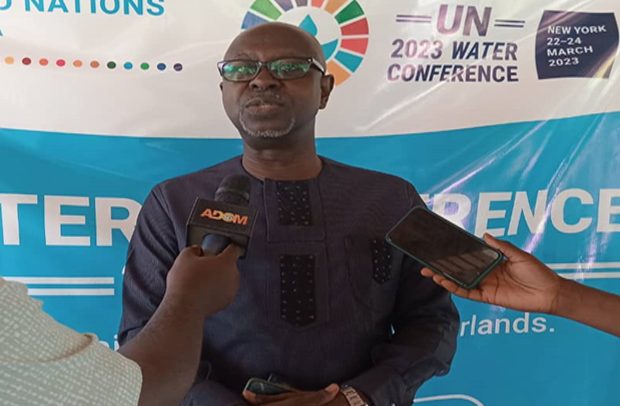Anthony Yaw Karikari speaking to the press
Principal Research Scientist of the Council for Scientific and Industrial Research (CSIR) Water Institute Organization (WIO), Anthony Yaw Karikari, has revealed that 46 per cent of Ghanaians will most likely experience water scarcity by 2030 if effective water management systems are not put in place to prevent it.
Speaking at a press briefing organized by United Nations Ghana to commemorate the eve of the second UN Water Conference and World Water Day, Mr. Karikari explained that the increase in population, urbanization, migration, as well as economic growth, climate change and the nuisance of galamsey has caused Ghana’s water resources to deplete and if measures are not put in place, Ghana could find itself in a water crisis in seven years to come.
“Ghana is water stressed and the proportion of people living in water scarcity and stress areas is growing. If water management systems such as water security, development planning and forecasting, environmental protection measures, and water conversation are not put in place soon, we will find ourselves in a major water crisis in the near future,” he shared.
Chief of water, sanitation, and hygiene at UNICEF Ghana, Ramesh Bhusal, also shared that climate change is having a negative effect on the access of water in the country, especially in the northern regions, therefore UN is supporting the government to assess climate related risks infrastructure that supports water, sanitation, and hygiene (WASH) in those areas.
“A study is underway to map-out all the risks faced by WASH infrastructure and services. The findings will help develop the Operational Guidelines and Minimum Standards for Climate and Shock Resilient WASH Solutions in Ghana, especially in the five regions in northern Ghana,” he stated.
He further urged the government to increase public finance in WASH and create an enabling environment for the private sector and users to invest in sustainable water and sanitation services.
By Abigail Atinuke Seyram Adeyemi


